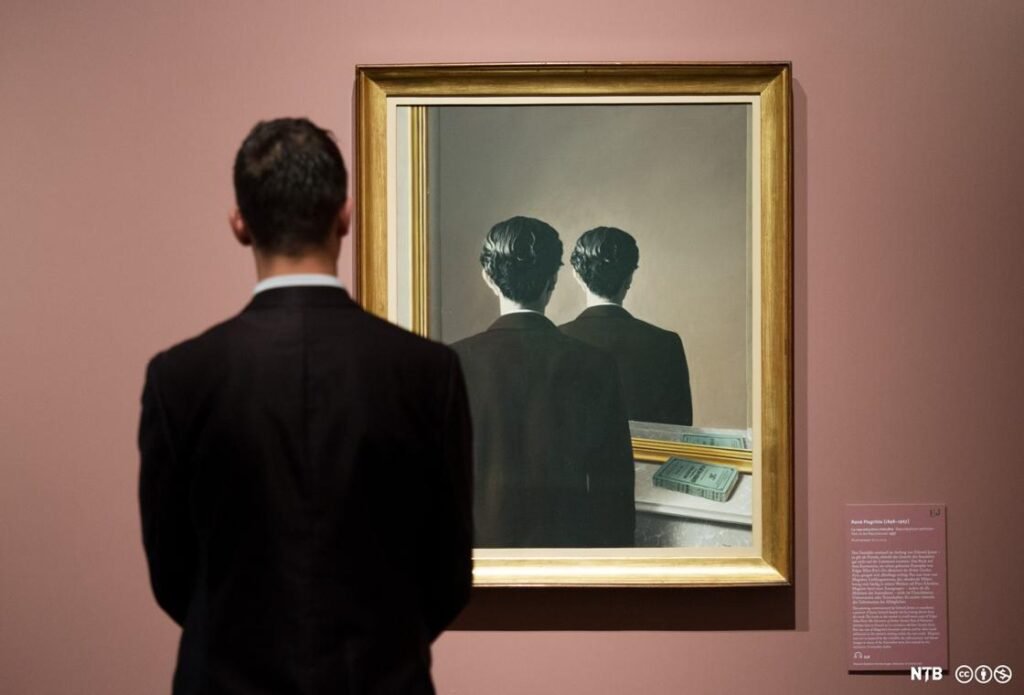For most of my life, I have been a vivid dreamer. Usually, every morning I awaken to memories of engaging dreams I experienced through the night. Some of those dreams are humorous, others occasionally scary, and most include variations of experiences or people that I encountered during the previous day; but then on rare occasions, I will have a dream that seems to be more intense in which I see myself in the dream from a third person point of view.
In those dreams, I am not just experiencing the events, I am watching myself experience those events. Those dreams sometimes leave me feeling like I have had some kind of spiritual encounter. Yet, how can we know if God is trying to tell us something in our dreams? What does the bible say about seeing yourself in a dream?
Coincidentally, as I sat down to write this article, my ministry assistant came into my office and said, “I had a really disturbing dream over and over again last night, do you think God was trying to tell me something?” There is certainly biblical evidence that God has conversed with people in their dreams either personally, through an angel, or by way of some type of imagery. For example, the first recorded dream in the Bible, which is found in Genesis 20:1-7, details how God spoke to Abimelek king of Gerar warning him not to have sexual relations with Abraham’s wife Sarah. Other examples include God speaking in dreams directly to Jacob (Genesis 31:10-13); to Laban (Genesis 31:24); and to King Solomon (1 Kings 3:5-15). Through four other dreams an angel spoke on God’s behalf to Joseph, the earthly father of Jesus, which can be found in Matthew 1:20-21; Matthew 2:13; Matthew 2:19-20; and Matthew 2:22. There were additional dreams in which people saw strange images that the Bible claims were messages from God, including a giant loaf of bread rolling through an enemy camp (Judges 7:13-15); and a large statue being demolished (Daniel 2:1-49).
All in all, there are twenty-one dreams mentioned in the Bible. In addition to these dreams, the scriptures describe how other people also had spiritual visions which were messages from God, but these visions would not be classified as dreams because the person claimed they were awake when they saw the vision. So, how can you know when God is trying to speak to you through a dream, especially a dream in which you see yourself? What does the Bible say about such dreams? Lets find out..

Some dreams are like watching a scene play out on a giant movie screen. In those dreams, you are witnessing the events as they occur, but you are still somewhat detached from what is happening. In other dreams, you are an active participant in the events, seeing them as you would in real life. For example, you may recall a dream in which you know that you were the one conversing with other people, or you know that you were the person holding someone’s hand, or you were the one who was running from some danger.
Yet, there is a third type of dream, in which you actually see yourself as one of the characters in the nocturnal drama. Examples of these types of dreams include:
- Seeing yourself or someone that looks like you (i.e., a doppelgänger) in the dream;
- Seeing your own reflection in a dream, like in a mirror;
- Having a dream in which you are a child, a baby, or as an older version of yourself;
- Dreaming of yourself as a monster, criminal, or engaged in some other atypical behavior that is opposite from your normal personality;
- Fighting with yourself in a dream;
- Seeing yourself naked in a dream;
- Or having a conversation with yourself in a dream.
There are several theories and interpretations of these types of “third person” dreams, but all of them are just speculative and based upon non-scientific conjecture.
For instance, many of those interpretations suggest that people who see a version of themselves in their dreams have some type of identity issue that needs to be addressed. Other dream interpretations postulate that perhaps the dreamers seeing themselves in their dreams are struggling with some type of self-esteem problem, or they are trying to disassociate themselves from some personal conflict.
However, from a religious perspective, there is no biblical evidence to support those theories. As previously mentioned, there are only twenty-one dreams recorded in the Bible, ten in Genesis, one in Judges, one in 1st Kings, three in the Book of Daniel, and six in the Gospel of Matthew.
Out of those twenty-one dreams, there are only four in which the dreamer specifically mentions that they saw themselves in their dream. Let’s quickly look at each one and see if there is any indication within those passages that can help us know when God is speaking to us if we have a dream in which we see ourselves.

In the first dream, Joseph sees eleven sheaves of grain belonging to his brothers bow down to his bundle of grain. In the second dream, he watches as the sun, moon, and eleven stars bow down to him. (See Genesis 37:1-11). When Joseph retells the dream to his parents and his eleven brothers, they scoff at the idea that they will all one day bow down to him. However, years later when Joseph is made third in command over the land of Egypt, his brothers do bow down before him begging for food. (See Genesis 42:6).
The other two dreams are both described in Genesis 40:1-23, in which a cupbearer and a baker each have a dream in which they see themselves in the dream. These two men were servants of Pharaoh who had been locked in prison for offending their master. They each have a dream on the same night. The cupbearer sees himself picking three bunches of grapes from a vine and giving the juice from the grapes to Pharaoh. The baker sees three baskets of bread on his head; however, birds come and eat all the bread. Both men are disturbed by these dreams and believe that God was giving them a message. When God’s servant Joseph interprets the dream, he tells them that in three days the cupbearer will be restored to his position and the baker will be beheaded. Three days later, both of these dreams came true!
Did you notice that all four of those dreams are connected with one biblical character, Joseph? When Pharaoh inquires about Joseph’s ability to interpret dreams, Joseph quickly responds that he is unable to give the meaning of any dream, for that ability is God’s alone.
In a similar manner, Daniel tells the king of Babylon the same thing: “No wise man, enchanter, magician or diviner can explain to the king the mystery he has asked about, but there is a God in heaven who reveals mysteries” (Daniel 2:27-28). In the New Testament, the author of Hebrews claims that although God spoke to people in the past through dreams and visions, that His primary means of communication to humanity was now through His Son Jesus and the Bible. (See Hebrews 1:1-2). With that in mind, look to Jesus and His Word for direction and guidance in your life before you go speculating about a dream.
My firm conviction is that each person in the Bible who received a message from God through a dream always knew or were told that the message came from God, and the confirmation of that message was that the dream was fulfilled. So, the next time you see yourself in a dream, sit back and enjoy the show, for God will reveal to you when you are awake if it was a message from Him or if the dream was just the musings of your own mind.
Dr. Richard Sams is a top Biblical and Religious educator, who holds a Doctor of Ministry degree (Evangelism and Church Growth emphasis) from the Southern Baptist Theological Seminary in Louisville. He has two masters’ degrees (Master of Divinity and Master of the Arts of Religion) from Liberty Baptist Theological Seminary in Lynchburg and also serves on the Pastoral Leadership Advisory Board of Liberty University. Moreover, Richard Sams has been serving as a pastor (Pastoral Ministry) at Calhoun Baptist Church in Calhoun, KY, from the past Nineteen years. He loves practically imparting biblical truths to the next generation, while occasionally conduct spiritual challenges on his facebook page facebook.com/MakeItCountChallenge
